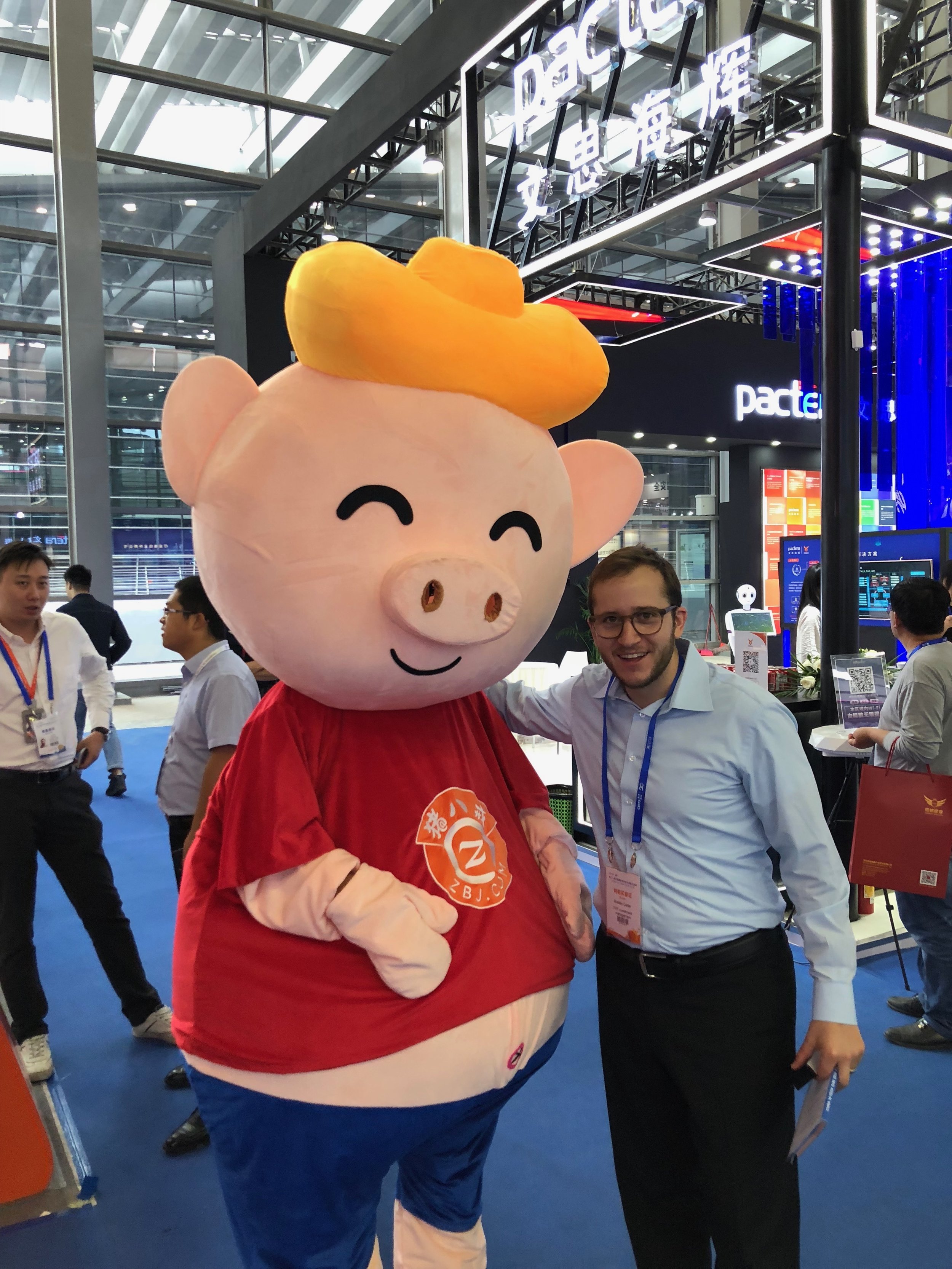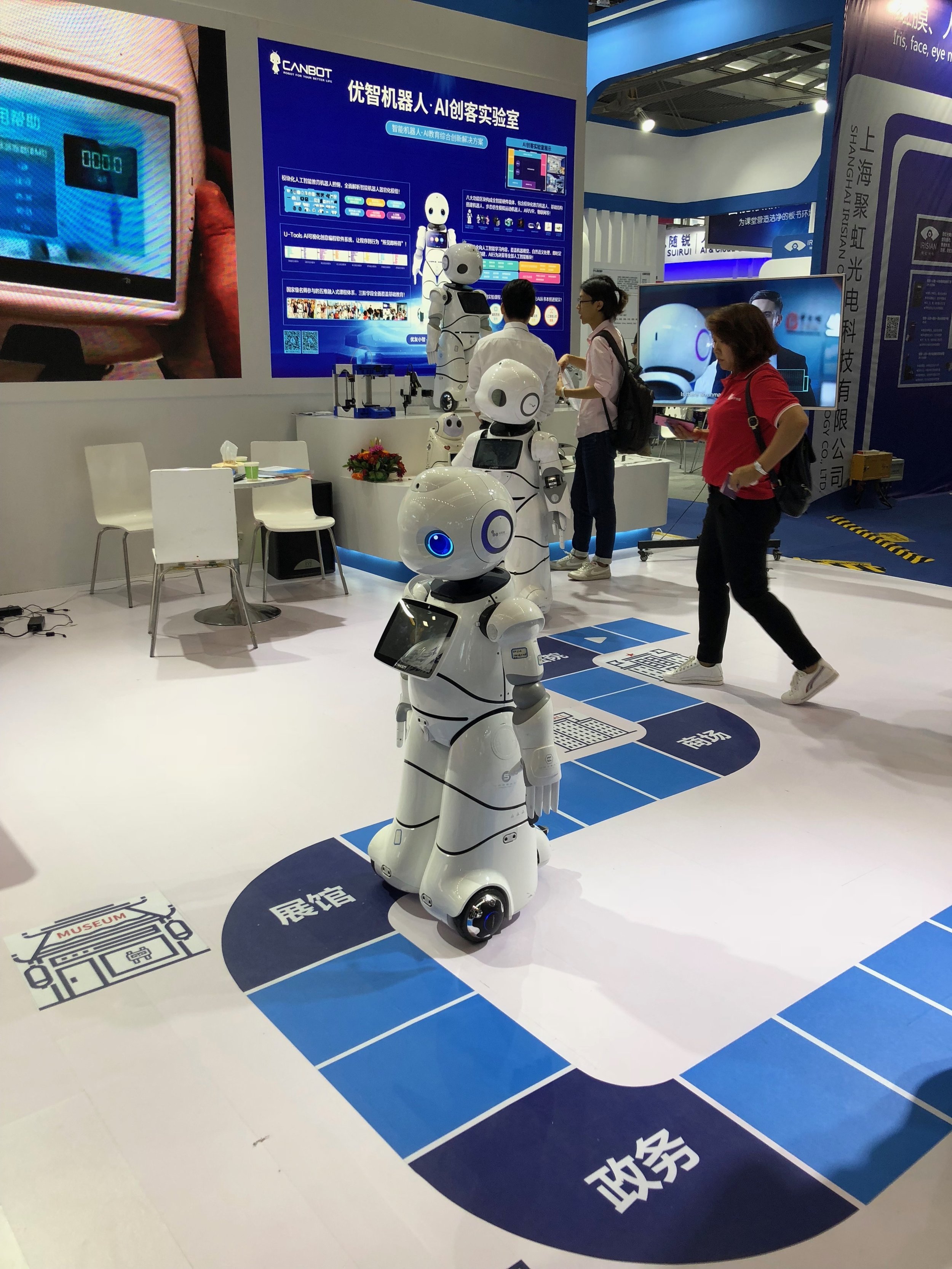Observations from China
I recently spent two weeks in China and visited Xian, Suzhou, Shanghai, Shenzhen, and Hong Kong. On my trip I talked with my friends, family, business contacts, cab drivers, tailors and even robot engineers. My objectives for this trip included learning more about day to day life in China, how people spend their time online and offline, better understand various industries, practice Mandarin, and compare what I learned to my previous experiences in China over the last eight years.
I especially enjoyed my time in Xian. Xian has been a culturally distinguished city for more than 3,000 years and today has a population of more than 12 million. Incomes range from 3,500 RMB for lower skilled people to 10,000 RMB for high skilled people. The price of new real estate is about 10,000 RMB per SQM. Rents are about 1,500 RMB to rent a 100 SQM apartment. This implies a roughly 2% cap rate, consistent with cap rates I observed in Suzhou last year. The city center is widely built out with apartments from the 1990s-2000s. Therefore, developers are building 30+ floor residential real estate towers in lower density locations, in some cases more than an hour drive from the city center. Subways should be coming soon.
Xian’s primary industries are the military industrial complex and tourism. Xian has heavily invested in its cultural heritage and is a premier tourist destination in China. Xian’s city walls span 12+ km and young people enjoy riding bikes around the wall. The Muslim culture street and the Terracotta Army are both outstanding places to visit. Comparing the Terracotta Army Museum, a UNESCO Site, to a popular second tier city and tourist destination in India such as Jaipur’s Hill Forts is enlightening. China is decades ahead of India in tourism development, accessibility of the site, quality of the experience, and supporting ancillary shopping experiences.
I even got to enjoy a special dinner with my Chinese teacher Han Chen. She treated me to a Xian Muslim hot pot. We first ate a fish stew with Sichuan flavors. After enjoying the fish, the waiter added soup base and we ate hot pot, talking and eating slowly, 慢慢吃.
Whether you are in Xian, Suzhou, Shanghai, or Shenzhen, Meituan is everywhere. Meituan, has changed the streets of China. Delivery men with yellow helmets and electric bikes are swiftly moving about cities. Meituan’s effect is visible inside the home as well. Many of the people I spoke with told me they are cooking at home less often these days than ever before, they are ordering delivery more frequently due to Meituan’s sheer speed and convenience.
Meituan on the move.
WeChat Pay and Alipay have subtly changed society. Imagine sitting down at a restaurant, scanning the QR code on the table, a menu appears on your screen, and you select your food. The waiter comes a few minutes later with your dishes. You scan the QR code again to pay and then you leave. Notice that during your entire restaurant experience, you did not actually have to speak to a waiter. Next, imagine you are at a bar, and you order two cocktails. The bartender holds up a QR code scanner, you hold up your QR code on your phone, she scans it, and gives you your drinks. She no longer must waste time making change, you no longer worry about leaving your credit card at the bar and you only need your phone to go out. Carrying cash, or even a wallet is considered uncool.
Hong Kong taxi cabs now accept RMB, how things have changed!
Wealth in China is inextricably tied to housing. Several of my close friends in Shenzhen who were lucky to buy property in in Futian district ten to twenty years ago have become wealthy from home price appreciation. The return profile resembles that of venture capital (50x or more in some cases). Homes bought for 1,000 RMB per SQM twenty years ago can trade for well in excess of 50,000 RMB per SQM. This situation puts much pressure on younger people moving into Shenzhen, wages for higher skill people could range from 10,000 RMB to 20,000 RMB per month, buying a house at current prices will be very challenging. The rents are damn high too. A one bedroom 60 SQM flat in a nice area of Shenzhen can cost 5,500 RMB per month in rent.
Real estate development is a challenging business. Land is auctioned by local governments and property developers must bid in open auctions, both SOE and private developers compete to win development rights. Materials costs and labor can be forecasted with reasonable accuracy, but a significant component of a real estate developers margin is determined by the government, namely the selling price of the home. In order to further national home affordability objectives, the government may cap the selling price of a home only a few percent above a developers’ costs or potentially force them to sell at a loss-making price by setting a price ceiling (price cap) too low.
Few people feel that the US/China trade dispute has had a meaningful effect on their life. Most people are not bitter about it and think of it like a business negotiation. Some people told me that they believe US is less credible going forward because it is no longer leading the vanguard for free market capitalism. Many said that China would have to further their efforts to produce American core technologies in China or find more reliable trading partners abroad.
In response to broad-based asset price declines, the government has enacted both accommodative monetary and fiscal measures including lowering the required reserve ratio and increasing the minimum income level for income taxation (fewer people will need to pay taxes). Price inflation on essential items such as food and clothing has been modest to flat recently. Those I spoke with only noted home price inflation as exceptional and substantial.
Regulations limiting the amount of time children spend on video games are viewed favorably, especially by parents with young children.
During a conversation with a robot engineer at the China Hi-Tech Conference in Shenzhen, I asked if her robots could harm humans? She explained that her robots for the consumer market cannot harm humans, and that only military robots can harm humans.
Hairy crabs, while challenging to eat, have a unique, naturally occurring sweet and salty taste. Traveling to Suzhou in November to eat golden haired crab is worthy of a special journey.
Golden Haired Yangtze River Crab
While local economic sentiment is clearly negative due to modestly slower economic growth, uncertainty about trade relationships, deleveraging and a general sense of pessimism, from my perspective as a foreigner, I remain optimistic. People in China continue to work hard and innovate. I wonder when we will start to see some of the innovations (such as Meituan or Ant Financial) that the Chinese take for granted begin appearing in America?









